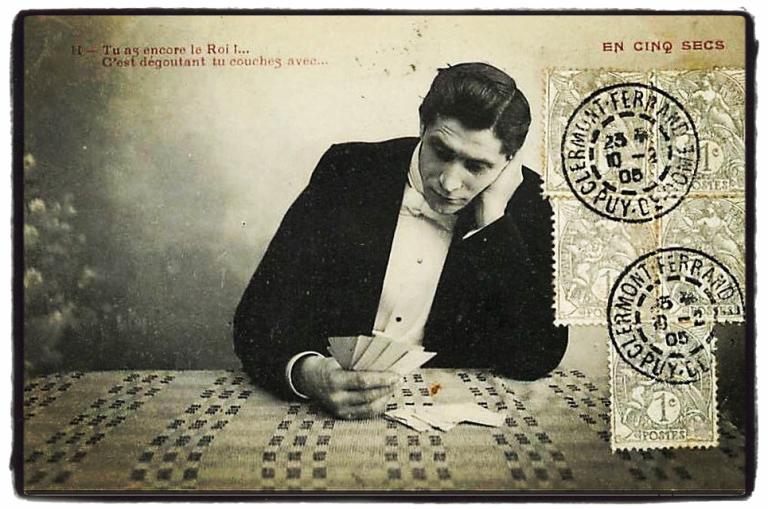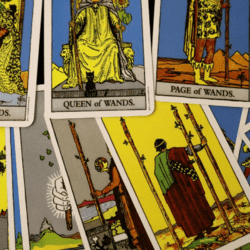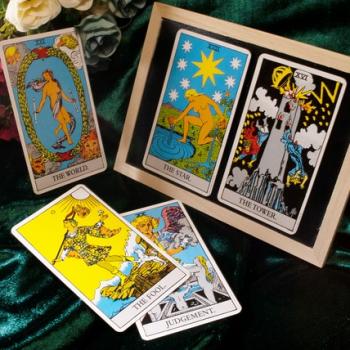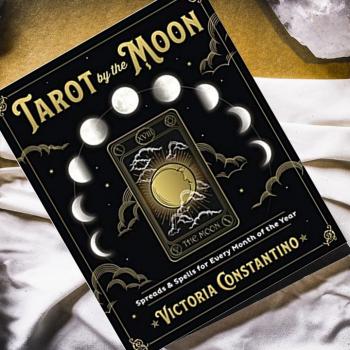
In my work with psychoanalysis I have come across this: Eager person equals loss of energy.
In my work with cartomancy I have come across this: Eager person equals loss of energy.
In my university teaching, I have come across this: Eager person equals loss of energy.
In all three, counselling and teaching capacities, I have also experienced this:
When eagerness is coupled with entitlement, it becomes hysteria.
Hence the question: What causes this extreme manifestation of drive, drive that we normally tend to think of as positive?
Lack of patience.
When you’re not patient you invest a lot of energy in anticipation.
But what is anticipation if not an exercise in futility, in projecting expectations that may or may not manifest?
Anticipation is thus informed by a whole lot of loss. Loss of energy.
When we eagerly anticipate something, we tend to think that the very act of anticipating is a good thing. Think again.
What eager or impatient anticipation creates are several types of danger:
- While waiting for things to happen you throw yourself into projects that run parallel to what you anticipate and that may have nothing to do with the anticipated.
- While waiting for an event, you project an outcome.
- Stemming from the projection of an outcome, you tend to evaluate the event, even before it has taken place.
- You think form is everything, and forget that form is emptiness and emptiness is form. You’re ready to embody a desired identity that you think has solid form. But even without ever having heard of the Heart Sutra, where the line: ‘form is emptiness and emptiness is form’ comes from, you could still intuit the truth of the non-substantiality of all things, if you gave yourself time, which you don’t when you’re impatient.
There are other dangers as well, but I see these as the most troublesome since they lead to massive loss of energy.
Massive loss of energy simply means complete loss of mojo, personal power, and the capacity to be in the present where you can distinguish between what you need and what you don’t need.
Anticipating that you need something (for the future, rather than right now), or that you don’t need something (also for the future, rather than right now) is what causes anxiety, because a true assessment of what you need can only be done in the now.
If you’re engaged in waiting for something, it’s thus much better to simply wait and see what happens, rather than decree in advance, either that what you’re waiting for has value or that it doesn’t.
It goes without saying that since the experience of what you anticipate is not here now, there’s no way in hell you can have any opinions about it, and nor can you make any educated guesses.
This is a common sense observation.
Boost your mojo
So here’s a short list of what you can do to become more aware of the extent to which you let your ego run the show, either through being too eager, or what’s worse, through being eager and entitled.
The idea is to see what function the ego has, acknowledge it, and then get on with the program, the program of putting your ego to your service, not vice versa.
For each of the five axioms, I offer a question. You can either reflect on it in quiet time, or you can use the cards for inspiration.
1. Patience is key to success.
Says old wisdom. If you think a little you’ll see why.
Being patient doesn’t mean settling with your major and minor desperation. Being patient directly tests your spine, the place where tenacity sits. Can you stand the distance?
Ask yourself:
‘In anything that I do, how much energy goes into tenacity, and how much into eagerness?’ If there’s no balance, change your attitude.
If you sit and wait quietly, chances are that you get to experience what’s happening right under your nose; and be aware of it. When you’re aware of it, you have clarity. You have mojo. Your energy is conserved.
If you charge ahead too eagerly, you jump at conclusions before you even get to the point where you can see what the project that you yourself have devised, or decided to participate in, entails of value.
2. Patience is audacious hope.
I say. Why audacious hope? Think. Often there’s a problem with hope, as hope lacks immediate manifestation. Things are not here yet, but you hope that they will be.
So the art is to know how to hope.
Ask yourself:
‘Is my hope informed by courage?’
You want to know this because courage is what anchors your hope, so hope won’t just float in the air, where it becomes something else than the expression of patience, where it becomes pink fluff devoid of devotion.
Courage lends your hope the strength of your spine, the strength of your resilience.
You have great mojo when you’re not invested in getting answers now, finding solutions to all things now.
All this takes a lot of energy and effort, and it often leads to disappointment.
Quick solutions turn out to merely replace one system with another, giving you another problem.
Hoping to embody a desired identity does not always lead to solving your current identity problem. Hoping to be able to control a new horse does not always lead to solving the problem with the old horse. Replacing small with big does not always solve the problem with small.
The art of hoping when it’s informed by courage goes beyond replacements instated as proclamations.
Your mojo is vastly boosted when you refrain altogether from language and its quick labeling solutions.
That’s what hoping in courage means: You have patience for seeing what is to be seen. Launching into quick verbal repartees is a sign of solid wit, but it has its place. If you can’t see this place, then you end up losing energy, and your wit will make no impact.
3. Patience overcomes obstacles.
Says Taoist wisdom: Be like water. Water, the softest element, has been observed to be the more efficient of the two in its encounter with the hardest rock. Water simply goes around it, flowing down the hill, following the natural law of gravity, thus overcoming everything that stands in its way.
Ask yourself:
‘What is my attitude in the face of obstacles?’
Do you launch into hysterical hopelessness, or are you accepting of whatever is in your way, blocking you?
Being like water is actually having the greatest mojo, simply because being like water means being beyond any concern.
You don’t even ask the question of what’s impossible. You just flow without losing any time with questions of what’s needed and what’s not. Energy is conserved at the maximum.
When you are like water, kicking your patience into a higher degree of acceptance, you realize that concepts such as overcoming pain for the sake of being in a state of pleasure don’t even exist.
The concern with pain and pleasure is not an issue.
The concern with what is necessary and what isn’t is not an issue.
The concern with what is urgent and what is significant is not an issue.
When you are patient, there’s no resistance. There’s no concern.
4. Patience elicits clarity.
I say. The vehicle for this is readiness and a form of surrendering to faith; the faith that all things come to you as they do, as a matter of course and by default.
You don’t force your way towards enlightenment. Enlightenment comes to you. It knocks on your door and says: ‘Hello, you actually know me, as I’ve been here all along’.
You don’t waste energy with making an effort to understand what IS already. You just stand in readiness. You say, ‘welcome’.
There is great mojo in acknowledging that standing in readiness is not even a question of your needing to do so, through proper preparation or other conceptual thinking about it.
When you have patience and faith that all things to come to you, as they do already, when you see that they have arrived, you just nod.
5. ‘A Pandora, in the higher sense, Patience.’
Said Goethe, in his collection of maxims and reflections, thinking about how faith, love, and hope, when working together, create this image, of Pandora’s box that everyone wants to open.
Ask yourself:
‘What drives my eagerness?’
Is this a desire to establish your work as relevant? I hope you’re not too eager about it.
I’ve seen many impatient people working way too hard towards establishing the relevance of their work as compensation for their sense of self-loathing.
Establishing relevance for your work should be the manifestation of passion, not dramatic intent.
What you need to remember is that you don’t have to establish any relevance for your existence.
Give yourself time, and time will teach you what you are, beyond form, beyond masks, beyond appearances, beyond fear and anxiety, beyond entitlement, and beyond opinion.
Give yourself time, and keep going.
♠
I teach people to read cards like the Devil.
Stay tuned for courses and other cartomantic activities.

















